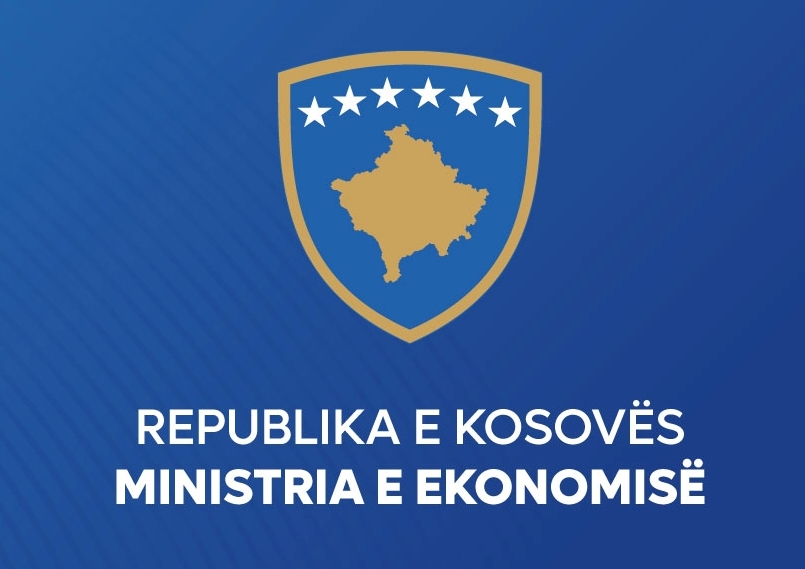Clarification concerning the auction process for the construction of the 100 MW solar park
Prishtina, 10 June 2025 – In order to address certain ambiguities and disinformation that have appeared in some media outlets, the Ministry of Economy issues this press release regarding the auction process for the construction of the 100 MW solar park led by the Ministry of Economy, with the support of the Government of the United States of America through the United States Agency for International Development (USAID). Any statement or insinuation of irregularities, violations or favoritism of any company in this process is incorrect and unfounded. This press release summarizes the factual course of the competitive process.
What does an auction mean?
An auction is a competitive procedure organized by public institutions (in this case, the Ministry of Economy) in which investors are invited to submit bids for the construction of new renewable energy (RES) generation capacities, while public institutions in the energy sector guarantee the purchase of the electricity produced once those capacities are built. In this process, among all applicants that meet the technical and financial criteria set out in the auction dossier, winner is declared the applicant that offers the lowest price for the sale of electricity.
Under the legislation in force, in the case of Kosovo the guaranteed buyer of renewable energy built under support schemes is KOSTT in its capacity as Market Operator or Operator of Renewable Energy Sources. Therefore, the auction documentation, in addition to the project-development agreement between the ME and the winner, also includes a power-purchase agreement (PPA) between KOSTT and the winner.
What advantages does an auction bring compared with the previous feed-in-tariff practice?
Previously, support for RES through feed-in tariffs operated under a scheme in which: (i) the price was set administratively (according to a methodology of the ERO; (ii) only a small number of investors had access to information; and (iii) applicants were selected on a “first come, first served” basis. Therefore, not all parties in the process had equal information and opportunity, and even among those who applied there was no competition that would secure the lowest possible price for consumers.
Conversely, in our auction process all potential investors had full and equal information through the publication of the documentation at the start of the process and subsequently through clarifications throughout the competitive phase. Strong competition resulted in an exceptionally low price of 48.88 €/MWh. By comparison, for solar energy produced by the solar capacities built under the earlier feed-in tariff, Kosovo’s consumers paid 161.6 €/MWh in 2025.
What guarantee did the Ministry of Economy require from the investor to ensure that the solar park is successfully built?
According to the auction documentation, the Ministry of Economy has required and currently holds a bank guarantee in the amount of EUR 7.5 million from the investor. This guarantee remains in force until the solar park is commissioned and may be called by the ME unconditionally if the investor fails to meet its obligations under the agreement.
What is the guarantee that has been mentioned in some media outlets and why was this guarantee requested from applicants?
KOSTT, as the public entity that guarantees the purchase of renewable energy through the PPA, must have a positive financial balance and financial stability in order to be a credible party for investors who will invest in the construction of energy capacities.
As KOSTT clarified in its press release of 5 June 2025, during this auction the company unfortunately did not have a positive financial balance because of the non-payment problem for electricity in the north of the country at that time. Potential investors considered this situation to be a possible risk of non-payment by KOSTT and therefore requested that KOSTT provide a payment guarantee after the plant is commissioned to secure payment for the energy purchased. This instrument would enable the investor, in the event that KOSTT fails to make payment for the energy it has accepted under the contract, to draw the unpaid amount from KOSTT via the bank. Thus, the guarantee simply assures the investor that it will be paid under the contract for the energy it has produced and sold to KOSTT for Kosovo’s consumers.
Such an instrument is common practice and also helps to make the project bankable by international financial institutions.
Has any guarantee been issued by KOSTT, the ministers or any other Kosovar institution?
No. Under the power purchase agreement (PPA), KOSTT has merely undertaken to secure the bank guarantee to ensure payment for the energy produced once the solar park is commissioned, which is expected during 2026. Meanwhile, the ministers have given a political commitment that they will take the necessary steps to provide financial assistance to KOSTT for this purpose should it be needed.
When was it foreseen that the bank guarantee would become part of the project agreements and did this affect competition?
At any stage of the project, every party without exception, whether an individual or a company, had the right to withdraw the auction dossier, which included all draft agreements as well as all questions from other parties and the Ministry’s answers to those questions throughout the competitive process. This is standard practice also in public procurement procedures.
Within the questions and comments of the parties, a number of written requests were also received from foreign investors who sought a bank guarantee to ensure the credibility and payment capacity of KOSTT as the Guaranteed Buyer. Through the answers to the questions received, before the deadline for questions expired, it was confirmed that such an instrument would be provided.
All project agreements, including the PPA, took their final form before the application deadline in the auction closed, namely when the winner was not yet known. Consequently, any insinuation of favoring a particular company cannot be true.
The provision of the guarantee enhanced investor confidence, which is a key factor in increasing the number of participants and achieving the lowest price for consumers.
What other steps were taken to ensure competition in this process?
While the process was open, the Government of the Republic of Kosovo, with support from USAID, undertook a series of promotional activities at domestic and international level with the aim of increasing competition. These included: a conference with potential investors; publications in prestigious media such as The Economist; promotion through the MFAD and all Kosovo embassies; and meetings of government representatives with potential investors during visits to France, Germany, Austria, Turkey, Greece and at COP28 in the United Arab Emirates.
In the first stage of competition, 6 companies/consortia from 6 countries applied: France, Germany, Egypt, Turkey, Switzerland and Kosovo. Of these, 5 met the technical and financial criteria and proceeded to the second stage. In the second stage of the auction, the qualified applicants competed with one another electronically, offering ever-lower prices for the sale of energy. After a fierce competition in 4 rounds that lasted a total of 7 hours, the winner was declared to be the Orllati-Holdigaz-ZPV-Jaha Solar consortium (from Switzerland, Germany and Kosovo, respectively) because it offered the most favorable price of 48.88 Euro/MWh, or 35 % lower than the ceiling price of 75 Euro/MWh set by the ERO. Competition through a reverse electronic auction was conducted for the first time in Kosovo and was broadcast live on RTK and on the website of the Ministry of Economy (link: https://www.facebook.com/share/v/1aJJCVjqqJ/).
Will this guarantee affect consumer tariffs?
In its market research, KOSTT found that the cost of providing the guarantee by banks on an annual basis can range from 0 to 1.7 % of the value of the guarantee. If the eventual costs were reflected in the tariffs, this would translate into a negligible impact of 0.0002 %. By way of illustration, this means that if someone pays a monthly bill of 5,000 Euro, the bill would become 5,000 Euro and 1 cent.
On the other hand, the low energy price secured through competition in this auction, to which the provision of the guarantee option also contributed, translates into annual multimillion-euro benefits for the country’s consumers.
Why is accurate and correct public information about this process important?
As it is the first auction, the Ministry of Economy and all Kosovo institutions have made maximum efforts to ensure that the entire process is fair and transparent, because this affects not only competition and the price for consumers in this process, but also shapes Kosovo’s image and the risk of energy investments in Kosovo for the future. With our first solar auction, Kosovo has created an excellent reputation for such investments. By way of illustration, Kosovo’s solar auction has been cited as a success story by the Energy Regulators Regional Association (ERRA), describing it as “…a transparent and inclusive bidding process attracted a high number of participants, reducing the bid price over consecutive sessions…” (link https://erranet.org/erra-regulatory-story-of-the-quarter-kosovos-first-solar-auction).
Correct and accurate information about this process from all parties contributes to maintaining this positive image, helping to attract new investors, which translates into competition and more favorable prices for the citizens of Kosovo.
The Ministry of Economy remains committed to providing accurate information, full clarifications and continuous transparency for each policy and process, in the interest of the public.

